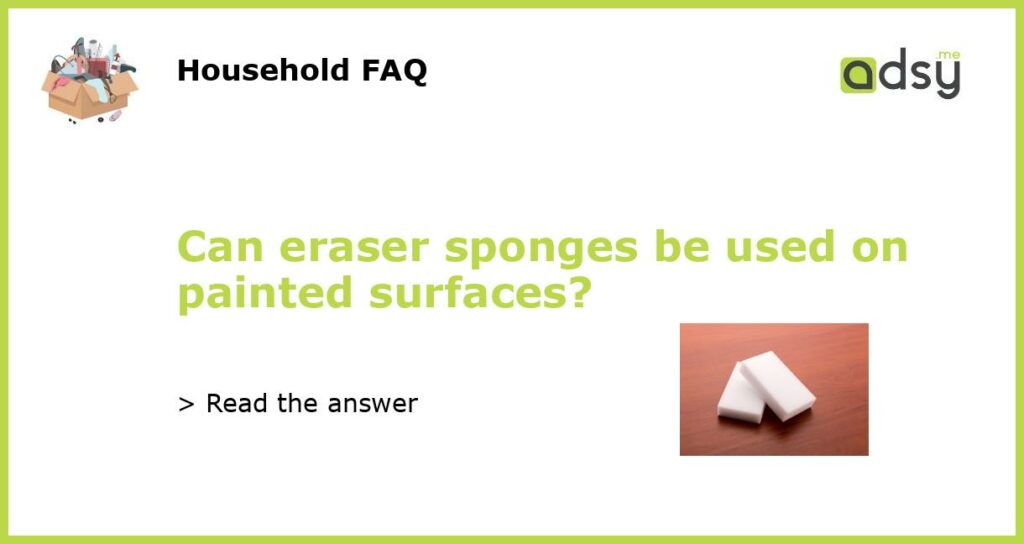Can Eraser Sponges be Used on Painted Surfaces?
Introduction:
Eraser sponges – a cleaning tool that has become very popular lately – are known for their ability to remove tough stains from various surfaces, from walls and floors to furniture and dishes. But what about painted surfaces? Can eraser sponges be safely used on these delicate areas without causing damage? Let’s find out.
What are Eraser Sponges?
Eraser sponges, also known as magic erasers, are made of a unique material called melamine foam. When used with water, the sponge’s structure creates a mild abrasive that can effectively scrub away dirt, grime, and other stains. Eraser sponges are known for their ability to remove tough stains without the need for harsh chemicals or excessive scrubbing.
Can Eraser Sponges Be Used on Painted Surfaces?
The short answer is yes, eraser sponges can be used to clean painted surfaces. However, caution is advised when using them, as excessive pressure or rubbing may cause damage to the delicate surface. It is recommended to test a small, inconspicuous area first to ensure that the paint does not chip, fade or become scratched.
How to Safely Use Eraser Sponges on Painted Surfaces
To safely use an eraser sponge on painted surfaces, follow these steps:
- Dampen the sponge with water until it is slightly wet.
- Gently rub the stained area in circular motions, using light pressure.
- Check the surface frequently to ensure that the paint is not being damaged.
- Rinse the surface thoroughly with clean water.
- Pat dry the surface with a soft cloth.
Conclusion:
Eraser sponges can be an effective cleaning tool for painted surfaces, but proper caution and testing is recommended before use. When used correctly, eraser sponges can help to remove tough stains without damaging the delicate paint surface. However, if you are uncertain or concerned about using an eraser sponge on your painted surface, it is always best to seek the advice of a professional.






